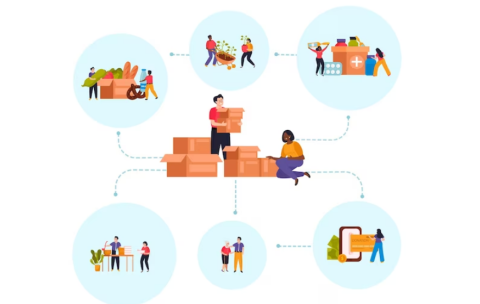Popular Instructors
All Non-Governmental Organizations: Charities, advocacy groups, etc. Courses
Sustainable Development and Social Entrepreneurship
Sustainable Development and Social Entrepreneurship is a progressive field focusing …
What you'll learn
Week 1: Introduction to Sustainable Development and Social Entrepreneurship (4 Hours)
Session 1 (2 Hours): Foundations of Sustainable Development
Understanding the Concept of Sustainable Development
The Three Pillars of Sustainability: Environmental, Social, and Economic
Global Challenges and the Role of Sustainable Practices
Session 2 (2 Hours): Principles of Social Entrepreneurship
Overview of Social Entrepreneurship and Its Impact
Key Characteristics of Social Enterprises
Case Studies of Successful Social Entrepreneurs
Week 2: Strategies for Sustainable and Social Ventures (6 Hours)
Session 3 (2 Hours): Creating Sustainable Business Models
Designing Business Models for Sustainability
Balancing Profit and Purpose in Social Ventures
Tools and Frameworks for Sustainable Business Planning
Session 4 (2 Hours): Social Innovation and Impact Measurement
Innovative Approaches to Social and Environmental Issues
Measuring and Evaluating Social Impact
Scaling Social Ventures for Greater Impact
Session 5 (2 Hours): Funding and Financing for Social Enterprises
Exploring Funding Options for Social Entrepreneurs
Strategies for Raising Capital and Crowdfunding
Financial Management in Social Ventures
Week 3: Leadership and Management in Social Enterprises (6 Hours)
Session 6 (2 Hours): Leadership in Social Entrepreneurship
Leadership Skills and Qualities in Social Enterprises
Building and Leading Effective Teams
Ethical Leadership and Decision Making
Session 7 (2 Hours): Marketing and Branding for Social Impact
Marketing Strategies for Social Enterprises
Building a Strong Brand that Reflects Social Mission
Leveraging Social Media for Community Engagement and Advocacy
Session 8 (2 Hours): Partnerships and Community Engagement
Collaborating with NGOs, Governments, and Businesses
Community Engagement and Stakeholder Management
Networking and Building Alliances for Social Change
Week 4: Practical Application and Capstone Project (4 Hours)
Session 9 (2 Hours): Workshop on Developing a Social Enterprise Plan
Applying Course Concepts to Develop a Social Enterprise Business Plan
Interactive Workshop and Group Discussions
Feedback and Guidance from Instructors
Session 10 (2 Hours): Capstone Project Presentations and Course Conclusion
Presentation of Individual or Group Capstone Projects
Peer Review and Constructive Feedback
Course Summary and Future Trends in Sustainable Development and Social Entrepreneurship
This course structure ensures MBA students gain a comprehensive understanding of sustainable development and social entrepreneurship, combining theoretical knowledge with practical project work and case studies. The curriculum is designed to prepare students for leadership roles in social enterprises, non-profits, or any organization focused on sustainability and social impact.
Social Work and Community Development Management
Social Work and Community Development Management is a vital field …
What you'll learn
Week 1: Introduction to Social Work and Community Development (4 Hours)
Session 1 (2 Hours): Fundamentals of Social Work and Community Development
Overview of Social Work: Principles and Practice
The Role of Community Development in Social Change
Historical Context and Evolution of the Field
Session 2 (2 Hours): Ethical Foundations and Theoretical Frameworks
Ethical Considerations in Social Work and Community Development
Theoretical Frameworks Guiding Practice
Understanding Community Dynamics and Needs Assessment
Week 2: Management Strategies in Social Work and Community Development (6 Hours)
Session 3 (2 Hours): Program Planning and Project Management
Designing and Implementing Community Development Programs
Project Management Tools and Techniques in Social Work
Monitoring, Evaluation, and Impact Assessment
Session 4 (2 Hours): Financial Management and Resource Mobilization
Budgeting and Financial Management for Non-Profits and NGOs
Strategies for Fundraising and Resource Mobilization
Grant Writing and Financial Reporting
Session 5 (2 Hours): Leadership and Human Resource Management
Leadership Styles and Skills in Social Work and Community Development
Building and Managing Effective Teams
Volunteer Management and Community Engagement
Week 3: Advanced Topics and Contemporary Issues (6 Hours)
Session 6 (2 Hours): Policy Advocacy and Social Justice
Role of Policy Advocacy in Social Work
Strategies for Advocating for Social Justice and Change
Engaging with Policymakers and Stakeholders
Session 7 (2 Hours): Collaborative Partnerships and Networking
Building Collaborative Partnerships with Government, Businesses, and NGOs
Networking and Coalition Building
Case Studies on Effective Community Partnerships
Session 8 (2 Hours): Technology and Innovation in Social Services
Leveraging Technology for Social Work and Community Development
Innovative Approaches to Addressing Social Issues
Data-Driven Decision Making in Social Services
Week 4: Practical Applications and Capstone Project (4 Hours)
Session 9 (2 Hours): Case Studies and Problem-Solving Workshop
Analysis of Case Studies in Social Work and Community Development
Group Workshop on Tackling Real-World Problems
Developing Solutions and Strategies for Community Issues
Session 10 (2 Hours): Capstone Project Presentations and Course Conclusion
Development and Presentation of Capstone Projects on a Specific Aspect of Social Work or Community Development
Peer Review and Feedback
Course Summary and Reflections on the Role of Leadership in Social Work and Community Development
This course structure provides MBA students with a comprehensive overview of social work and community development management, blending theoretical lessons with practical exercises, case studies, and a capstone project. The curriculum is aimed at preparing students for leadership and management roles in non-profit organizations, NGOs, and community development initiatives.
Understanding Not-for-Profit Organizations in the Quinary Sector
This course aims to provide a comprehensive understanding of not-for-profit …
What you'll learn
Define the concept of not-for-profit organizations (NPOs) and distinguish them from for-profit entities.
Describe the key characteristics and principles that guide NPOs in the quinary sector.
Analyze the social and economic impact of NPOs on local and global communities.
Understand the legal and regulatory framework governing NPOs and their financial accountability.
Identify the challenges and opportunities facing NPOs in today's evolving landscape.
Explore various models of fundraising and resource mobilization for NPO sustainability.
Examine case studies of successful NPO initiatives and their transformative effects.
Assess the ethical considerations and responsibilities associated with NPO leadership and governance.
Formulate strategies for effective collaboration and partnership development within the NPO sector.
Develop a broader perspective on the role of NPOs in addressing societal issues and contributing to positive change.





